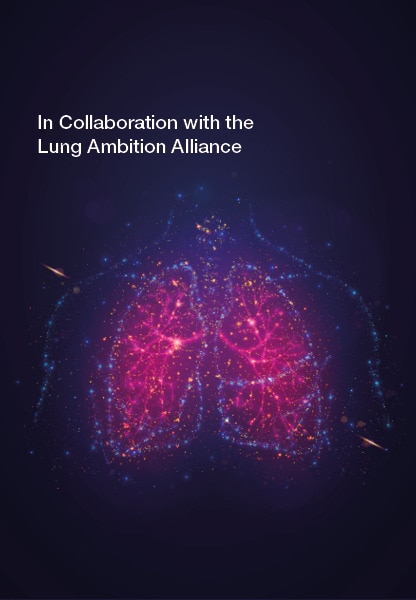
Eliminating ineffective spending on global health
Our global platform is developing effective best practices, sharing lessons learned, and guiding the development of value-based healthcare system transformation.
The Platform for Shaping the Future of Health and Healthcare engages stakeholders in new models of public private collaboration to identify and scale up solutions for more resilient, efficient, and equitable healthcare systems to keep populations healthy and deliver the best care.
In the next decade, healthcare delivery systems will transform radically. Our current capital intensive, hospital-centric model is unsustainable and ineffective. The Future of Health and Healthcare leverages a data-enabled delivery system and virtual care, integrated across the continuum of care from precision prevention to personalized care delivery, with most health services offered in appropriate settings.
To achieve the mission, the Platform for Shaping the Future of Health and Healthcare supports stakeholders in the global health and healthcare ecosystem prepare for the future by:
1) Encouraging new models of collaboration/partnership in addressing challenges, creating opportunities and scaling existing best-in-class initiatives in public-private coalitions, and;
2) Raising awareness, building a shared understanding and driving collective action to leverage the Fourth Industrial Revolution to transform the health and healthcare systems.
Our Partners comprise the world's 1000 leading companies, developing solutions to the world's greatest challenges.
Our global platform is developing effective best practices, sharing lessons learned, and guiding the development of value-based healthcare system transformation.
Through a new partnership with the Clean Air Fund, the World Economic Forum has committed to accelerating solutions to air pollution.
Most digital mental health apps are not evidence-based. We are supporting lawmakers in developing successful policies on tech for digital mental health.
The Forum and its partners have provided countless solutions in response to COVID-19 pandemic worldwide, protecting lives and livelihoods. One year on, we revisit them
Members from different industries and over 25 countries and 250 companies representing more than 1 million employees are involved in the COVID-19 Workplace Commons: Keeping Workers Well i...
The Coalition for Epidemic Preparedness Innovations (CEPI), launched at the Forum, provided funding for the first human trial of a COVID-19 vaccine - administered in March, 2020.
The Global Fund to fight AIDS, Tuberculosis and Malaria, launched at the World Economic Forum Annual Meeting 2002, is raising, managing and investing the world’s funds to defeat three of ...
For societies to thrive, we need a concerted global effort to create a more sustainable and equal healthcare industry by transitioning to value-based health systems.
The UHC2030 Private Sector Constituency, hosted by the Forum, has released a statement on private sector contributions towards Universal Health Coverage.
Gavi, the Vaccine Alliance has contributed to the immunization of 760 million children and has saved more than 13 million lives.
Tuberculosis (TB) has killed more people over the last decade than any other infectious disease. It is a lethal respiratory pathogen, transmitted through the air, and found in nearly ever...
Our world has been shaken and irrevocably changed and the Forum’s mission to improve the state of the world is now more relevant and urgent than ever before. The COVID pandemic has shed l...
Unprecedented disruptions caused by the COVID-19 pandemic, followed by social, economic, geopolitical and environmental challenges, continue to place complex and interconnected threats on...
The global healthcare budget crisis is not a new topic and rising healthcare costs continue to be a critical discussion point. The limits of what can be spent on healthcare are being reac...
The COVID-19 pandemic has exposed the vulnerabilities of global and national health systems. Already-struggling healthcare systems have shifted their resources to the pandemic response, w...
Across the world, mental health systems are overburdened and under-resourced, and on-going crises such as COVID-19 are making the situation worse. To address this ‘silent pandemic,’ there...
Gene therapy is at the forefront of modern medicine. By making precise changes to the human genome, these sophisticated technologies can potentially lead to one-time lifelong cures. As of...
Lung cancer is the leading cause of cancer deaths worldwide, resulting in 1.8 million mortalities each year, with an estimated increase of 30% over the next decade. However, the needed po...
The Indian state of Telangana has been a pioneer in the adoption of emerging technologies. With the recent completion of India’s first organized medical drone-delivery programme under the...
The FIRST Cancer Care initiative based out of the Centre for the Fourth Industrial Revolution in India explores how technological advances can revolutionize cancer care, and drives action...
This toolkit aims to provide stakeholders exploring the use of disruptive technologies in mental health with the tools to develop, adopt and engage standards and policies that address any...
During the height of the outbreak, many hospitals diverted their efforts exclusively to COVID-19 patients and cancer clinics suspended or limited services. There is an opportunity to emer...
When a new technology is introduced in healthcare, especially one based on AI, it invites meticulous scrutiny. The COVID-19 pandemic has accelerated the adoption of chatbots in healthcare...
The discovery of diagnoses and treatments that could save or improve lives requires access to large data sets, but such access has historically been blocked by variations in data security...
This white paper aims to begin addressing the need for new or modified policies by proposing a genomic data policy framework and corresponding set of ethical tensions for policy-makers, b...
The benefits of precision medicine in terms of superior health and healthcare outcomes are increasingly clear, but there are challenges to the equitable and widespread dissemination of pr...
This guidance document highlights six broad ethical tensions to be aware of when crafting sound, long-lasting genomic data policy. We do not imply that one ethical position is right or ...
This paper is part of a Forum project, Breaking Barriers to Health Data, in which the health and data-policy communities navigate the complex landscape of data policies via the use of fed...
A Vision for the Future: Transforming Health Systems
Scientific and technological advances in medicine promise to transform health and healthcare to become much more connected, precise and democratized, with significantly improved human out...
In a world characterized by an ageing population, more and more people suffering from long-term chronic disease, and ever-increasing healthcare costs, improving healthcare value by delive...
The “Value in Healthcare - Mobilizing cooperation for health system transformation” highlights three drivers of health system transformation:
The World Bank estimates global population sizes of approximately 8.5 billion by 2030 and 9.2 billion by 2040. As recently as 2014, the United States and United Kingdom spent approximatel...
In this study on mice. late-morning exercise increasing genes were related to fat burning (breakdown), heat production, and blood vessel production.
Healthcare innovation is accelerating at an unprecedented scale, the WHO says. From AI to gene editing, here are 5 innovations that are pushing boundaries.





































